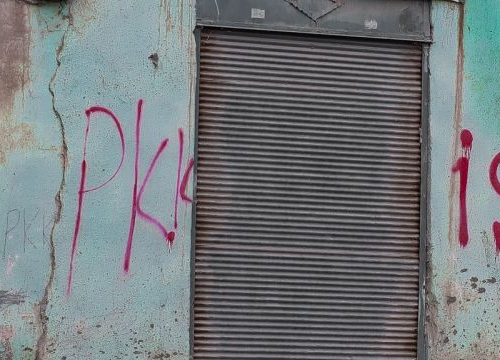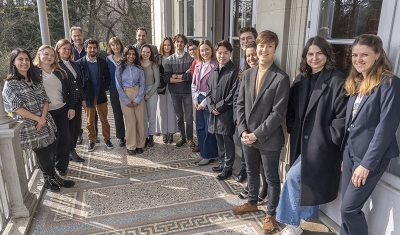Kurdish Military Formations in Middle Eastern Battlefields


Pavel Dobrovsky
23 November 2017
Our new publication Kurdish Military Formations in Middle Eastern Battlefields, written by Vicken Cheterian, provides an overview of Kurdish history, of current dynamics of the Kurdish question, as well as of Kurdish forces and armed groups in the Middle East. It also analyses how recent developments in the region, including the emergence and fight against the Islamic State (ISIS), are impacting on Kurdish armed groups and alliances.
This publication will form part, along with other analysis of conflict situations, of the War Report 2017 which will be published at the beginning of 2018.
‘Kurdish armed groups are currently parties to several armed conflicts across the Middle East, notably in Syria, Iraq and Turkey. Understanding the origins of Kurdish military formations, their dynamics and how the different groups are interlinked is essential to grasp with the complexity of these armed conflicts and the geopolitical equilibrium of the Middle East’ underlines Dr Annyssa Bellal, Strategic Adviser on International Humanitarian Law at the Geneva Academy and Editor of the War Report
A Mosaic of Kurdish Political-Military Groups
Today, five distinct political-military groups dominate the Kurdish space: the Kurdistan Workers’ Party (PKK), the Kurdish Democratic Party (KDP), the Patriotic Union of Kurdistan (PUK), the Democratic Union Party (PYD)/ People’s Protection Units (YPG) and the Peshmergas, with a number of smaller guerrilla groups originating from Iran but based in northern Iraq, such as the Kurdistan Democratic Party of Iran (KDP-I) and the Komala Party of Iranian Kurdistan. These groups represent distinct interests and have contradictory alliances with regional and global powers.
A Key Role in the Syrian Armed Conflict
Since 2012, Kurdish armed groups have emerged as a major force in northern Syria. The withdrawal of Syrian governmental troops from the area in July 2012 created a power vacuum, which two separate Kurdish political forces tried to fill: the PKK and its associate PYD/YPG, and the Iraqi KDP and its allies in Syria.
Yet, it was the PKK–PYD who would emerge as the masters of northern Syria, impose their military dominance over the Kurdish areas there and become the barrier that stopped ISIS wave that spread through Syria and Iraq in the summer of 2014, and would later, with the help of the US-led coalition, roll back ISIS gains.
‘Any peace solution in Syria will have to integrate the Kurdish armed groups involved in the conflict and take also into account their links with other groups involved in other conflicts in neighbouring countries’ stresses the author of the study.
Ideological Shift in the Region
The publication highlights that the most fundamental challenge for all Kurdish political forces is the ideological shift in the larger Middle Eastern environment, triggered by the influence of jihadi groups such as al-Qaeda and more recently ISIS.
‘Today, the Kurdish nationalist phenomenon is an anomaly in a region where the nation-state is collapsing, and where neo-Islamism is widespread, influenced by salafi-jihadism and sectarian divides’ underlines Vicken Cheterian. ‘The influence of jihadi groups such as al-Qaeda and more recently ISIS has largely been taboo, although there is enough circumstantial evidence concerning the important influence of salafi-jihadism in all four areas of Kurdish political reality’ he adds.
Kurdish Armed Groups in the Rule of Law in Armed Conflicts Online Portal
Our Rule of Law in Armed Conflicts (RULAC) online portal identifies the Kurdish Protection Units (YPG) as a party to the non-international armed conflicts in Syria, the Kurdish Peshmerga as a party to the non-international armed conflicts in Iraq against ISIS and associated groups, and the Kurdistan Workers' Party (PKK) as a party to the non-international armed conflict in Turkey.









